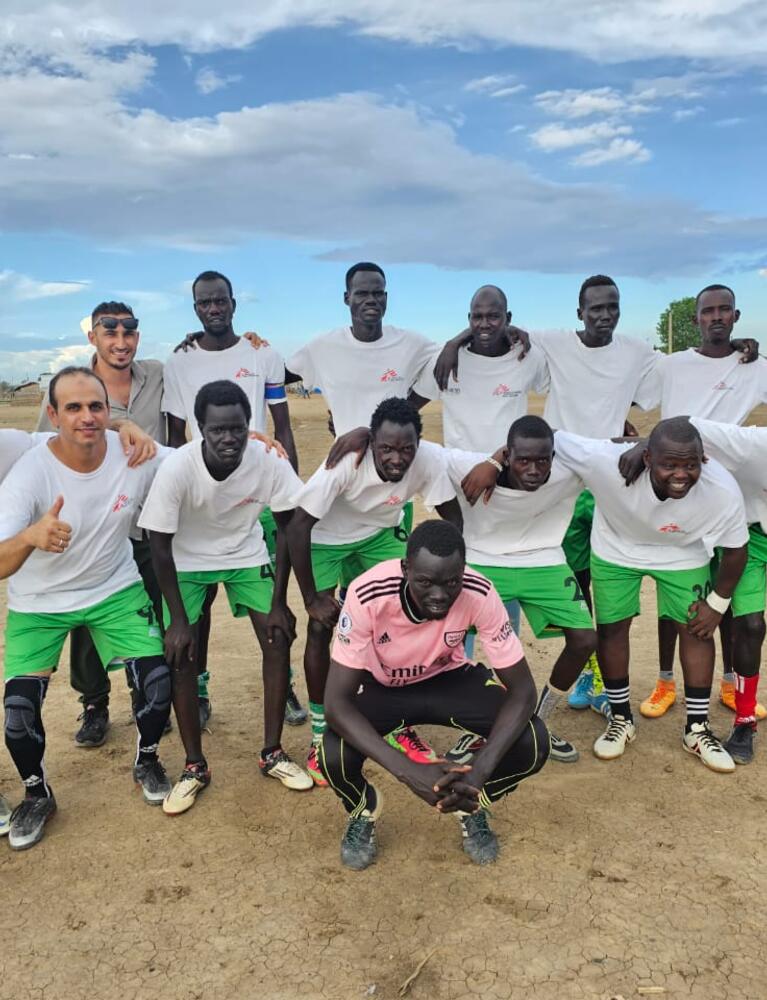In the town of Abyei, there is an electric atmosphere rivalling that of any World Cup match. This football field, however, serves as a witness to community engagement, woven into life by the MSF team.
Abdulrahman Khaleel was two months into his role as coordinator of MSF’s project in Abyei when he recognised an opportunity to strengthen engagement between MSF and the local community, which just a year ago was riven by intercommunal violence.
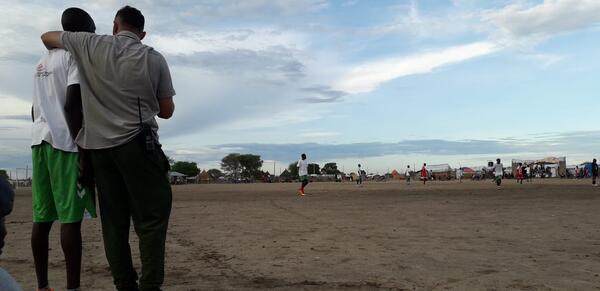
The idea was simple: a multi-day football tournament that would help bring people together.
MSF’s football team had been set up just weeks earlier. Participation in the MSF team was not exclusive to the athletic or skilled, but was open to all staff members, creating a sense of belonging.
“On arrival in the project, I noticed a chance to strengthen the relationships between the staff working in the project,” says Abdulrahman. “I wanted to create something that would attract everyone's attention and bring us all together in one place. Therefore I proposed the idea of starting an MSF team to play football together, made up of MSF staff, Ministry of Health staff and daily workers. This event raised people’s spirits and closed the gap between the various staff working in the project. We made sure that participation in the football team was open to everyone. It provided a space in which all the staff could feel affiliated with something.”
MSF has been providing medical care in Abyei Special Administrative Area since 1997. In 2006, MSF stepped up its work in Abyei to provide a range of services including emergency care, surgery, maternal and paediatric care, vaccinations and treatment for various diseases. In 2008, MSF established a hospital in Agok. Following intercommunal violence that broke out in Agok in February 2022, which led to some 70,000 people being displaced from their homes, MSF moved its operations from Agok to Abyei town and Twic county to continue supporting the displaced community.
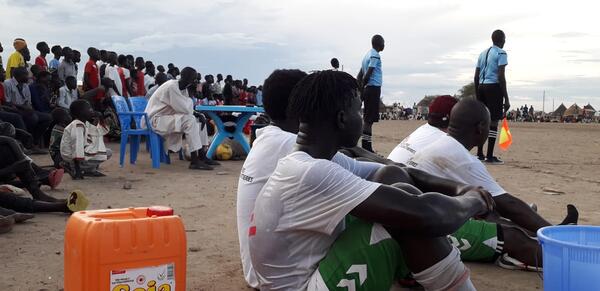
The idea of a football tournament between the new MSF team and the local community materialised with the help of local authorities and youth representatives. The tournament featured 12 local teams, all playing on one field.
MSF organised the tournament: securing the pitch, arranging linesmen and referees, and inviting the local teams. The event took place over several days in June and was attended by local people and community leaders. It provided a unique opportunity for MSF staff to engage with the community beyond its daily medical-focused activities. The scale of community involvement exceeded all expectations. The excitement reached its peak when the MSF team took the field, reflecting a connection that transcended medical support.
“We were surprised by the number of people from the community who came out to watch each match, especially when the MSF team was playing,” says Khaleel. “The final match was attended by a large audience including the head of local government in Abyei. We were amazed by the attention the football tournament received and its impact on the community.”
For Reena Sattar, who leads HR Operations for MSF in South Sudan, attending the tournament was not just about football; it was an example of community engagement at its best. “I was here in February 2022 just after the intercommunal violence in Agok,” says Reena. “I came back a year later to see the progress from emergency response to more regular-style projects in both Abyei and Mayen Abun. On my second day here, Abdelrahman, the project coordinator, said: ‘There’s a football match today after work, do you want to come? It’s an MSF tournament that we organized.’ Of course, I said yes!"
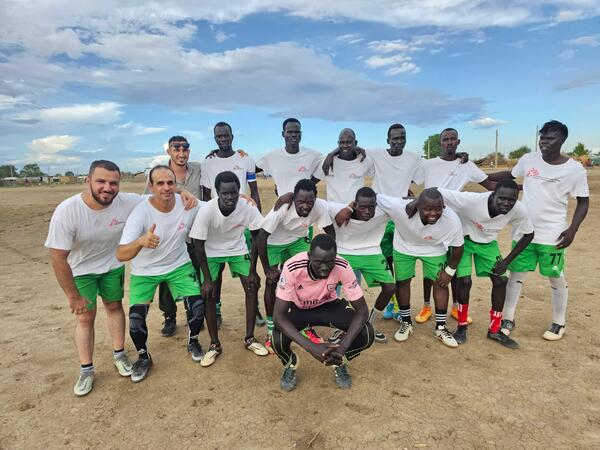
Abdulrahman recalls how a team member told him that, after the tournament, local people were talking about the football matches rather than about tensions related to the recent conflict. This highlights the positive impact that such an initiative can have on people’s morale and focus.
“This kind of activity brings us miles ahead with our efforts to approach the community and youths,” says Abdulrahman. “By organising this tournament, we sent a direct message to the community about who we are. I won’t forget the moment when a team member approached me and said: 'This was a great idea. People are now talking about the tournament, not the war and conflict.'"
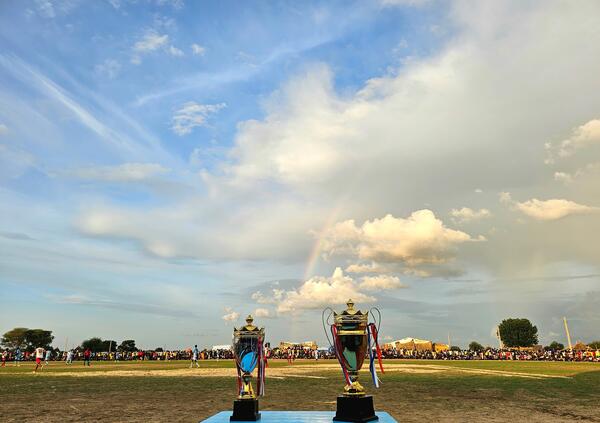
The MSF team in Abyei has also been focusing on diversity, equity and inclusion within the project in recent years. This has led to a shift in gender roles and to the promotion of locally hired staff to managerial positions through training and development programmes.
Reena added: “In South Sudan, we now have female drivers and male midwives – it sounds like a small thing, but it didn’t exist 10 years ago. We’ve also seen the progression of staff from entry-level positions up to managerial positions, thanks to on-the-job training, as well as to people management courses and technical, logistical and medical training for our staff. I also hope to see us moving towards more inclusive decision-making: involving our locally hired staff more in operational decisions, given that they know the history of the project as well as the context.”
The football tournament in Abyei was not just a series of matches; it was an embodiment of integration, teamwork and diversity, and a positive example of how humanitarian community-based engagement can bring people together.



